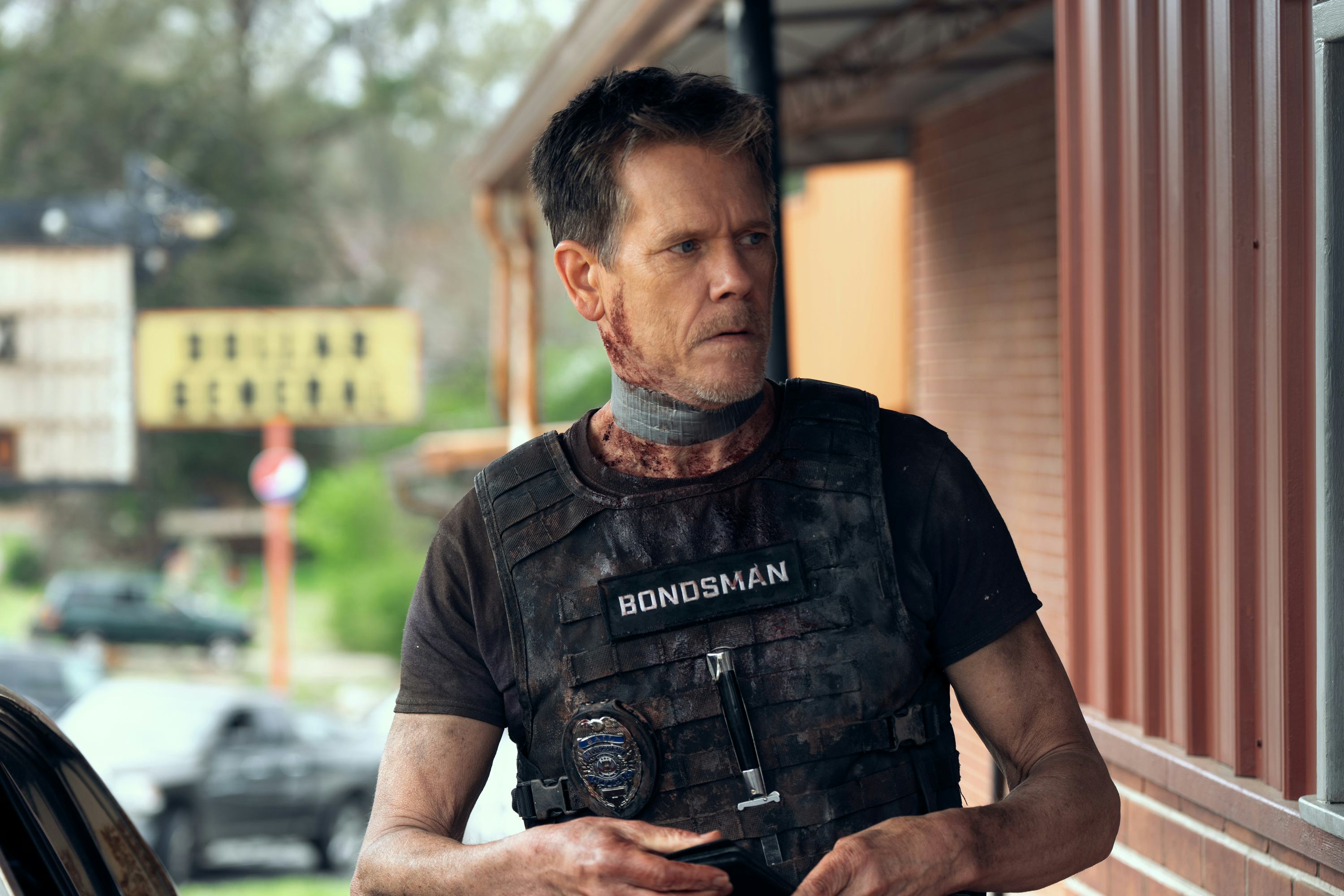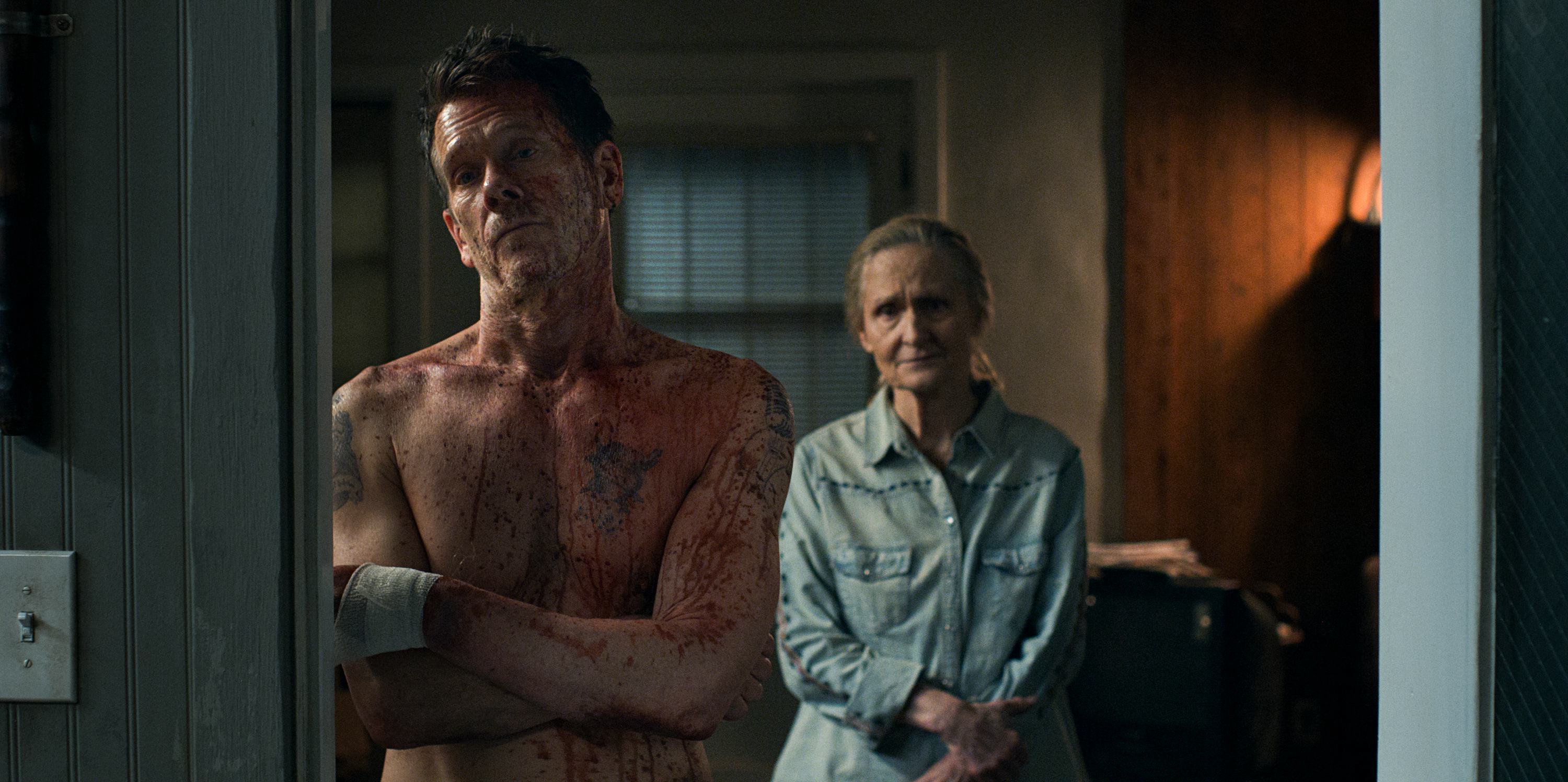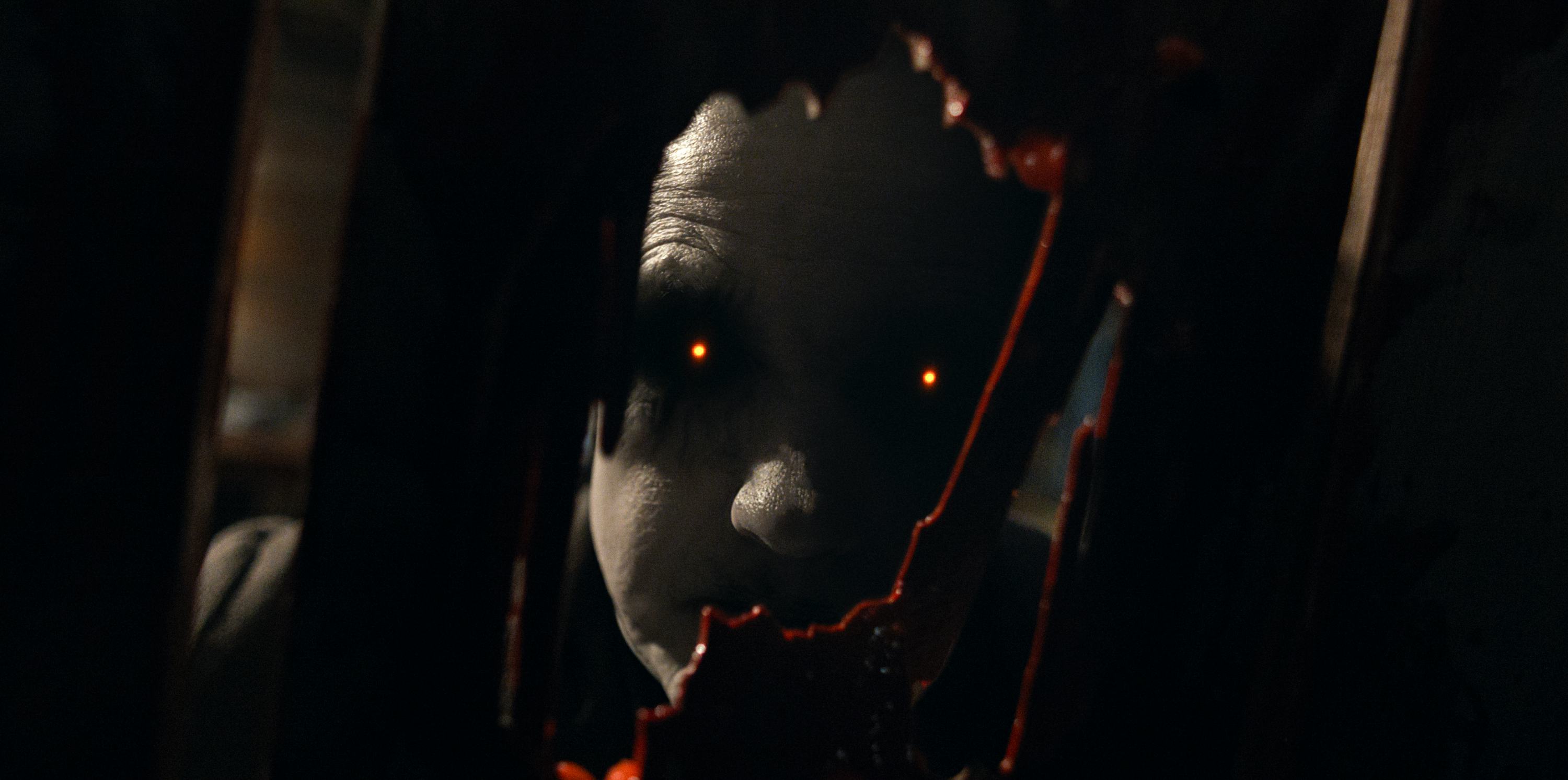
There’s something reassuring about hell needing its own bureaucracy. Not because the prospect of dying and being immediately greeted with contracts, policing, and hierarchies sounds appealing (I’d rather there’d be no afterlife at all), but because the continuity from our own business-minded, rigidly administrative society would, in a depressing way, help orient us among all the morbid dread. It’s a genre observation that’s central to Blumhouse’s new series The Bondsman, where Kevin Bacon hunts demons for the Devil.
When Southern bounty hunter Hub Halloran (Bacon) ambushes his bail-skipping target at a dreary motel (with a hornet’s nest in the ventilation system, no less) he gets his throat slashed for his trouble and bleeds out in the parking lot. He wakes up inside the walls of the motel, a gaping gash across his throat without suffering any serious pain. As his wound miraculously closes up and he returns to his crappy life — a kindly mother Kitty (Beth Grant) and a singer ex-wife Maryanne (Jennifer Nettles), who is now with the shady country club owner Lucky Callahan (Damon Herriman) — he grows suspicious that he’s not supposed to walking God’s green earth.
There’s a catch to his resurrection: he is now an employee of “Pot O’Gold,” the Devil’s bond agency, and must continue his bounty hunting to catch the demons who have escaped hell’s clutches to possess imperfect mortals. Hub had been fighting his own demons before he was slaughtered, and even before he agrees to do the Devil’s dirty work (as requested by his manager Midge, played by Jolene Purdy) he tries to patch things up with Maryanne and his teenage son Cade (Maxwell Jenkins). But as Lucky tries to get rid of Hub for a second time, Hub realizes there’s a sinister pattern to the demons rising up from damnation to spill human blood. Pulled between two worlds, Hub has to reckon with his duties as both an imperfect family man and an afterlife cop.
What is an afterlife cop? It’s basically a character who polices the supernatural realm, or solves real crimes with special spiritual powers. They don’t have to be literal cops, they can be private investigators or trackers — so long as they’re under the “ghosts with a job” umbrella. Coming back from oblivion and still having to pay your way is a blackly comic concept, and The Bondsman draws a line between Satan and predatory contractual work — as Midge explains to Hub, he will only stay alive so long as he gets rid of the escaped demons he’s sent after. On the one hand, it’s fun to imagine the Devil relying on freelancers to clean up their less-than-airtight hold over the forces of darkness; on the other, it’s satisfying to see labor extortion linked with the literal Devil. (One of the best parts of Day Shift, Netflix’s vampire hunter movie starring Jamie Foxx, is the focus on an old-school vampire hunting union. Solidarity forever!)

This isn’t the first time Kevin Bacon has played an “afterlife cop” — in the comic-book adaptation R.I.P.D., he’s a Boston cop hiding his undead-ness from righteous ghost detectives Ryan Reynolds and Jeff Bridges. The other examples of afterlife cops in film are more wide-ranging: Willem Dafoe’s precise and delightful turn as the partly-decomposed Wolf Jackson in Beetlejuice Beetlejuice is an indulgent distraction from legacy sequel theatrics, while Bruce Willis’ investigation in The Sixth Sense maybe the straightest this premise has ever been played. If you have time to spare, there’s no shortage of Z-grade, made-for-TV, and obscure movies to satisfy your afterlife cop hunger, even if you won’t find many glowing reviews of Dead Heat, HBO’s The Sight, or the bluntly titled Zombie Cop.
Many afterlife cops find their home in the rhythms of procedural and episodic television. For a tonal whiplash of morbid mysteries, why not bounce between The CW’s iZombie, Netflix’s short-lived Dead Boy Detectives, and the two different versions of occult oddity Randall and Hopkirk (Deceased), a British series about a ghost PI whose partner is the only living soul who can see him.
One of the thrills about bounty hunter fiction is that they have to pursue criminals without the help or permission of the actual police force — an afterlife cop show like The Bondsman takes this “lawman for hire” tension and amplifies it. Hub has to serve a hidden supernatural realm while avoiding the attention of real cops, not just because they’ll get in his way, but because their mortality puts them in the firing line of powerful demonic forces.

The Bondsman’s blend of family drama and deadite dispatchment is tied together by Bacon’s performance, who plays Hub as equally beleaguered no matter how mundane or supernatural his problems are. Bacon is expertly cast as a selfish sack of sh*t who hates himself — an effective and compelling combination of his performances in MaXXXine, Cop Car, and The Following. Bacon’s presence is complemented by Beth Grant as his sparky, loyal mother, who is best whenever she’s reading, in a confused and concerned tone, the definitions of different demons from their Wikipedia pages.
The fickleness of streaming TV production means that it's rare for a whole season to total less than four hours, but hopefully the restraint and brevity of The Bondsman’s opening act sets it up for more ambitious Georgia hells-capades in the future. (This season ends with a Faustian change of employer that will undoubtedly land Hub in hot, unholy water.) The Bondsman competently builds its foundations on a premise that doesn’t simply understand how cool an afterlife cop is, but recognizes that it can be mined for engaging, pacey drama.







